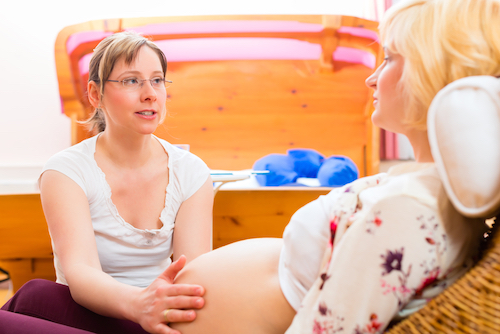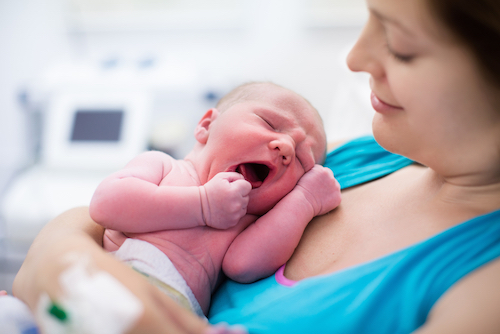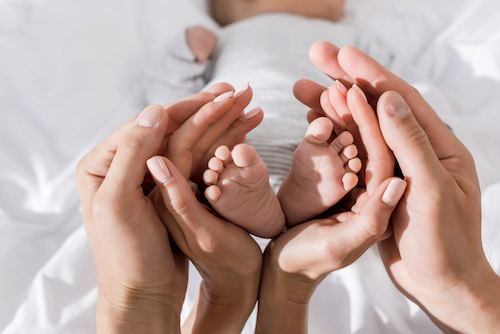The Dutch healthcare system is run by insurers but regulated by the government. All residents in the country are required to take out a health insurance policy, and insurers are not allowed to turn anyone away based on age or medical history.
Pregnancy care is free of charge in the Netherlands — all insurers are required by law to pay for pre- and post-natal care, as well as any necessary procedures during childbirth. At first glance, therefore, it seems like having a baby in the Netherlands would be a straightforward process, but some aspects may come as a surprise to expats.If you are already pregnant when you move to the Netherlands, you will still be fully covered and will not be liable for any medical fees. However, if you need to have any procedures or take any medications before your health insurance policy has come through, you will need to pay for these upfront and then be reimbursed once your policy is in place.
Prenatal Care
Midwives are a primary source of prenatal care in the Netherlands. Among locals there is a strong focus on childbirth as a natural process, and if there are no preexisting conditions that might complicate the pregnancy then generally people will choose to see midwives rather than doctors for most pre- and post-natal care. Giving birth at home is also a popular option. Ultrasounds will still be performed by a specialist, either in your local medical centre or in a hospital.
Finding a midwife is easy: you can ask your doctor for a list of local midwives they would recommend, or you can ask for recommendations online or from your neighbours. You can also consult de Verloskundige online to find more options near you.

Once you have found a midwife, they will probably recommend that you attend some prenatal classes. Prenatal yoga is popular in the Netherlands, as are breathing classes and natural pain management courses. Most prenatal groups will centre around techniques like these, helping people to give birth naturally without much (or any) pain relief.
Giving Birth
Home births are hugely popular in the Netherlands, with just under half of all births taking place outside of hospitals. Although pregnancy and childbirth care are covered by Dutch insurers, they will only cover treatments that are deemed medically necessary. This includes all recommended tests such as scans, as well as pre-natal classes, but it does not always include giving birth in a hospital. If no complications are predicted and the labour has proceeded straightforwardly, then you can still choose to give birth in a hospital, but you might be required to pay some of the fee yourself. If you go into labour at home but then encounter complications and need to go to hospital, then your fees will be covered by your insurance.

If you choose to give birth at home, then the same midwife who has conducted your pre-natal tests will come to your house along with a maternity nurse. They will stay with you during the delivery and will call an ambulance if any complications arise that require admission to hospital.
Once your baby has been born, the midwife will conduct a range of tests to check their general health. The midwife will leave fairly shortly after the tests have been completed, as long as there are no causes for concern. The maternity nurse will usually stay a bit longer and will help you to clean up after the birth and check that you have everything you need before leaving.
If you choose to give birth in a hospital, or if you have been told you need to do so for medical reasons, then you should call the hospital as soon as your waters break and they will advise you about when to come in. Once you have been admitted to hospital you will be allocated a birthing room where you will be examined to see how far you are dilated. Your baby’s heart rate will also be monitored.
When your baby is ready to be born, you will be under the care of a midwife or gynaecologist. One major difference between giving birth in hospital and giving birth at home is that in the hospital environment you will be assigned whichever midwife is on duty at the time, rather than the same person you have been seeing throughout your pregnancy.

Pain killers are rarely prescribed during childbirth in the Netherlands, even if you choose a hospital birth, and if you do ask for medication then it is likely to be mild. During a home birth you will not be given any medication, since midwives are not allowed to prescribe drugs, whereas in hospital you might be given some level of pain relief if you request it. You will need to make any such requests before you go into labour — make sure you discuss any pain-related concerns with your doctor well before your due date to make sure you are not caught out.
Epidurals are a popular option in many countries, but are very rarely given in the Netherlands. In theory they can be given to anyone upon request, but in practice there are many anecdotal stories of people who have been assured that they will be allowed to have an epidural during childbirth, but who are then told when they are in labour that a gynaecologist needs to sign off on the epidural before it can be given, or that no anaesthesiologist is available to do the procedure.
Once you have given birth, the length of time you remain in the hospital will depend on whether any complications have arisen during labour or when the midwife checks your baby after it is born. If all is well, then you should be able to leave within a few hours.
Post-Natal Care
Post-natal care in the Netherlands is excellent. You will need to find a kraamzorg, or home care specialist, fairly early on in your pregnancy to make sure they will be available once you have given birth.

Different insurance policies will offer different levels of post-natal home care, but they are not allowed to refuse it, so you will receive some level of care regardless of the premiums you choose. The minimum amount required by law is 24 hours, which can be spread over a number of days; when you choose your kraamzorg a representative will work out a post-natal care plan with you.
Usually the maternity nurse providing home care will visit you once a day and help you with basic post-natal things such as breastfeeding, bathing your baby, and shopping for anything you need. You can also opt for full-time care, in which your kraamzorg nurse will stay with you for up to eight hours per day, but this can be difficult to arrange as it depends on the availability of nurses.
Would you like to share your experience of life abroad with other readers? Answer the questions here to be featured in an interview!

